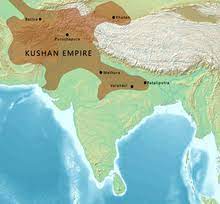Kushan Dynasty was an era of Cultural and Political Expansion in Ancient India. The dynasty was a powerful empire that ruled over large parts of Central and South Asia from the 1st to the 3rd century AD. The Kushans were known for their military conquests, cultural achievements, and political stability, making their reign one of the most influential periods in the history of ancient India.

Table of Contents
Military Conquests of Kushan Dynasty
The Kushans were a powerful military force, and their empire extended from present-day Afghanistan to northern India. The dynasty’s conquests helped to spread Buddhism throughout the region and beyond, and the Kushans were known for their tolerance of different religious beliefs.
Cultural Achievements of Kushan Dynasty
The Kushans were great patrons of the arts, and their reign saw the flourishing of literature, music, and visual arts. The dynasty’s art is characterized by a blend of Indian, Persian, and Hellenistic influences, creating a unique and highly recognizable style. The Gandhara school of art, which was developed during the Kushan period, remains one of the most famous examples of ancient Indian art.
Political Stability
The Kushan dynasty was known for its political stability, and the empire was characterized by a well-organized administration. The Kushans introduced several reforms, such as the use of a standardized system of weights and measures, which helped to improve the economy and trade.
Religious Tolerance
The Kushans were known for their tolerance of different religious beliefs, and their empire was home to a diverse population of Buddhists, Hindus, and followers of other religions. The dynasty’s religious tolerance helped to create a peaceful and harmonious society, which was a hallmark of the Kushan period.
In conclusion, the Kushan dynasty was one of the most influential periods in the history of ancient India. The Kushans’ military conquests, cultural achievements, political stability, and religious tolerance had a profound impact on the region and beyond, and their legacy continues to shape the culture and history of India and Central Asia even today.
Important Links